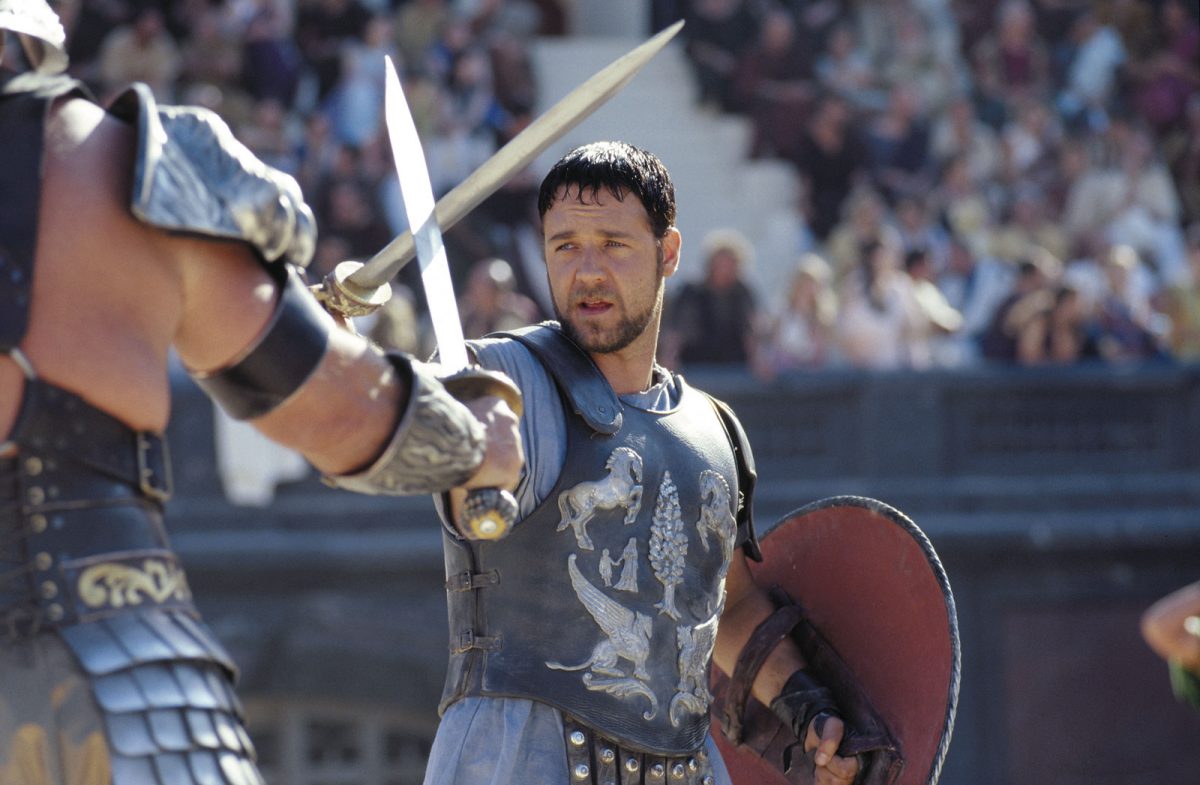Director – Ridley Scott – 2000 – US – 15 – 155m
*****
UK Release 12th May 2000.
Initiated by screenwriter David Franzoni (Amistad, Steven Spielberg, 1997) at DreamWorks, this picked up definitive cinematic stylist Ridley Scott, who created the seminal futuristic cityscape of Blade Runner (1982). Elsewhere, Scott’s downside is that his visuals notoriously swamp character and plot. Thelma & Louise (1991), his best film in the interim eighteen odd years, sidestepped precisely this pitfall. Gladiator, however, is more like Blade Runner. The plot is fine as far as it goes – which is far enough to deliver a halfway decent, engaging dramatic potboiler – but far more importantly it gives Scott the perfect peg upon which to hang another superlative cityscape. In short, Ridley Scott does ancient Rome.

Set-up, plot resolution, characters and even the leading man’s look are borrowed wholesale from The Fall Of The Roman Empire (Anthony Mann, 1964). Russell Crowe (looking remarkably like the original’s Stephen Boyd) plays Roman general Maximus, unhappy that the late Caesar Marcus Aurelius (Richard Harris) has been succeeded by his unsatisfactory son Commodus (Joaquin Phoenix). Treachery is afoot as Maximus is sold into slavery as a gladiator to compete in Commodus’ lavish games at Rome’s amphitheatre. If the opening reel suffers from a surfeit of visuals, the second (a minor arena in North Africa) works much better. However, the real thrills kick in around reel three once the proceedings hit Rome and its arena, host to the remainder’s excessively violent Games.

Today’s advances in digital imagery – at least in the hands of a master like Ridley Scott – dwarf the fifties’ and sixties’ monumental achievements in set-building. With a number of other sword and sandal movies already in development, Gladiator may well have rekindled a long-defunct genre. Future entries may or may not measure up – but as audience-pleasing, epic spectaculars go, this initial offering is undeniably impressive.
Originally published in AdHoc.
Trailer:
